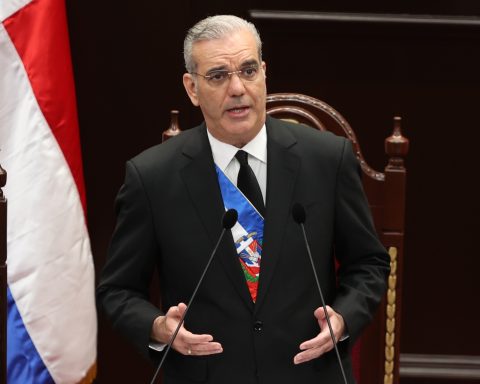Non-communicable diseases constitute the main cause of death from 2009 to 2021, with ischemic heart disease standing out among them.
Since 2019, the Dominican Republic has established the hearts strategy, initiative of the Pan American Health Organization (PAHO), through which it was possible to detect hypertension in 43,226 patients.
Hearts is envisioned as the model for cardiovascular risk management including hypertension, diabetes and dyslipidemiain primary health care in the Region of the Americas by 2025.
Currently, the strategy has already been implemented in 22 Latin American countries and operates in 177 Primary Care Units (UNAP) at the national level.
In each care center, the clinical guide is applied, with a cardiovascular risk calculator, which indicates the correct position that the patient should have when measuring their pressure, quality requirements of the instruments to be used, monitoring of the medication and instructions on habits for a healthier life.
A unhealthy diet, little physical activity, use of tobacco and alcohol they are the main enemies of a healthy heart. A blood pressure above 140/90 is not controlled.
Patient profile
Of the 43,226 hypertensive patients registered at Heart facilities, the 64% turned out to be female (with 27,882 diagnosed patients). Men occupy 36% of the cases.
The age range that encompasses more people are those between 50 and 69 years of age, with 13,091 ladies and 6,882 gentlemen. It is followed by patients aged 70 and over with 16,220 reports, combining men and women.
The region where more diagnoses were recorded was in the North Central with 14,810 hypertensives, followed by the Eastern Region.
Benefits of applying the strategy
By relying on existing structures of the health system, the cost of implementation is minimal.
This strategy seeks to change paradigms, both in the health personnel and in the users, motivating a change in behavior with a view to improving the lifestyle, eventually reducing the patient’s health expenses.
Patients who live in rural areas should not travel to large cities to receive a diagnosis, since by going to the nearest UNAP they can have all the attention.
The strategy is ideal for discovering “hypertension hidden”, those patients who are suffering from the heart and have not yet discovered it; improves access to medications and achieves control by keeping patient statistics up to date.
challenges to face
Among the challenges, PAHO calls to overcome political inertia and institutionalize Hearts throughout America; improve access to high-quality health care and address technical deficiencies; strengthen Primary Health Care and its information systems and promote a culture based on continuous quality improvement.
the details of the Heart Strategy were announced at a workshop for press personnel given by the PAHO.
The national technician for non-communicable diseases, Vhania Batista; the person in charge of chronic diseases of the Ministry of Health, Daniel Mola; the coordinator of Health Services of the First Level of Care, Isabel Santiago; among other personalities.















